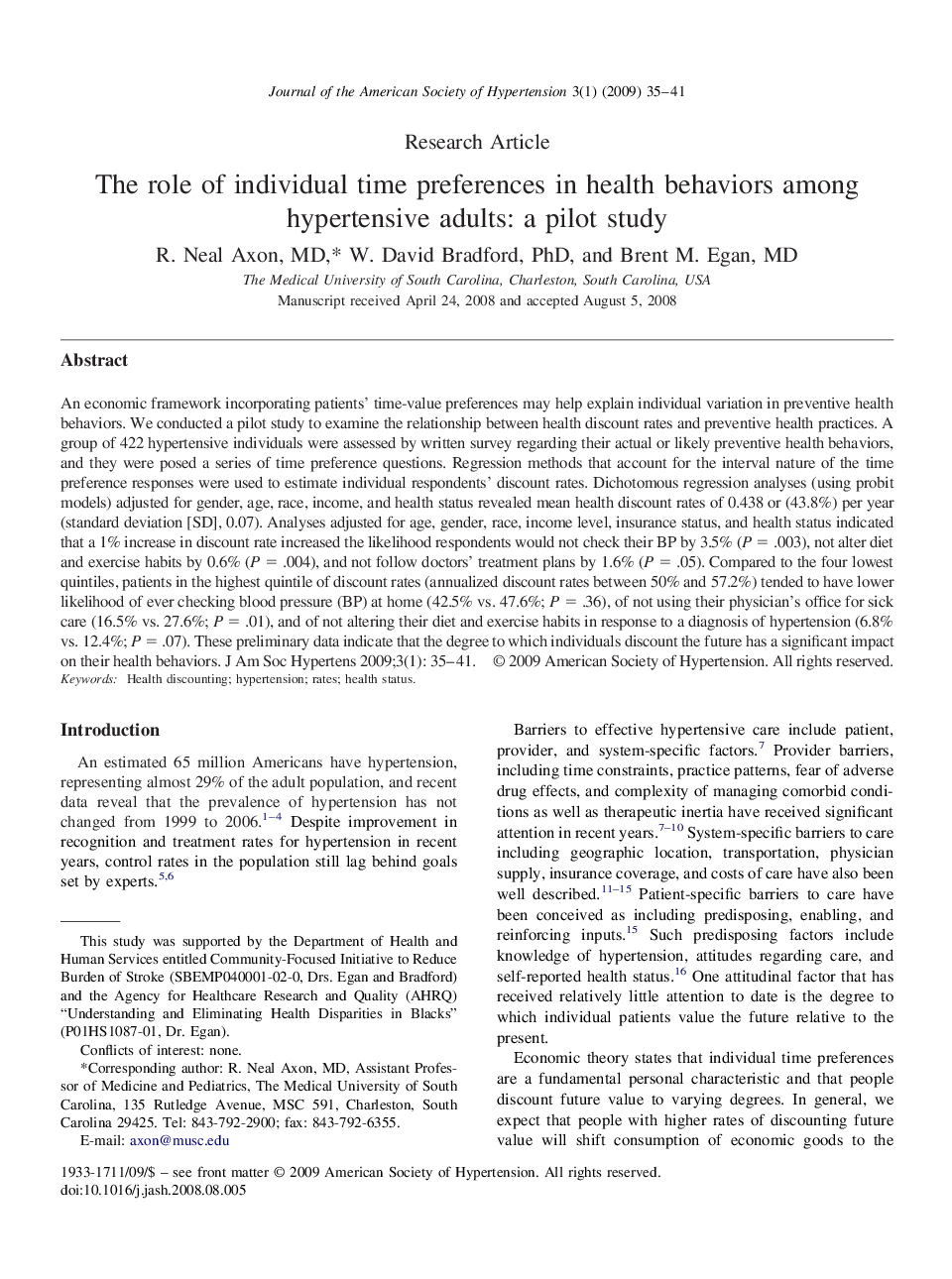| کد مقاله | کد نشریه | سال انتشار | مقاله انگلیسی | نسخه تمام متن |
|---|---|---|---|---|
| 2957172 | 1578087 | 2009 | 7 صفحه PDF | دانلود رایگان |

An economic framework incorporating patients' time-value preferences may help explain individual variation in preventive health behaviors. We conducted a pilot study to examine the relationship between health discount rates and preventive health practices. A group of 422 hypertensive individuals were assessed by written survey regarding their actual or likely preventive health behaviors, and they were posed a series of time preference questions. Regression methods that account for the interval nature of the time preference responses were used to estimate individual respondents' discount rates. Dichotomous regression analyses (using probit models) adjusted for gender, age, race, income, and health status revealed mean health discount rates of 0.438 or (43.8%) per year (standard deviation [SD], 0.07). Analyses adjusted for age, gender, race, income level, insurance status, and health status indicated that a 1% increase in discount rate increased the likelihood respondents would not check their BP by 3.5% (P = .003), not alter diet and exercise habits by 0.6% (P = .004), and not follow doctors' treatment plans by 1.6% (P = .05). Compared to the four lowest quintiles, patients in the highest quintile of discount rates (annualized discount rates between 50% and 57.2%) tended to have lower likelihood of ever checking blood pressure (BP) at home (42.5% vs. 47.6%; P = .36), of not using their physician's office for sick care (16.5% vs. 27.6%; P = .01), and of not altering their diet and exercise habits in response to a diagnosis of hypertension (6.8% vs. 12.4%; P = .07). These preliminary data indicate that the degree to which individuals discount the future has a significant impact on their health behaviors.
Journal: Journal of the American Society of Hypertension - Volume 3, Issue 1, January–February 2009, Pages 35–41